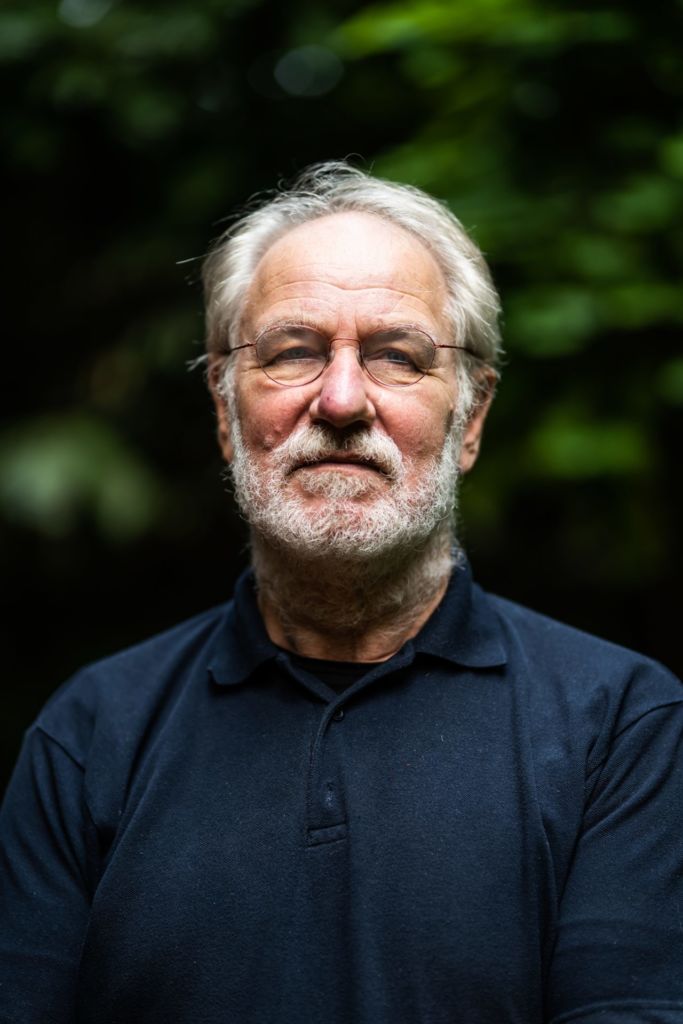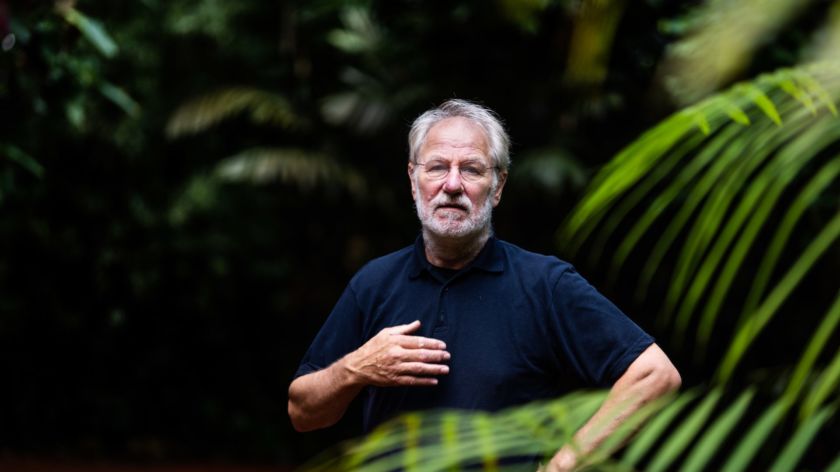‘Sustainability Prof’ Jan Jonker keeps pleading for a circular economy
Being invited to give the Sustainable Throne Speech was a great honour for ‘Sustainability Prof’ Jan Jonker. His plea for a circular economy also marked the end of his career as professor. The social gathering that should have followed could only take place in his imagination.
17 minutes, 2200 words and approximately 4500 viewers: the absolute highlight of Jan Jonker’s year took place on 1 September.
‘The Sustainable Throne Speech is usually held in the former House of Representatives,’ he explains. ‘However, the Binnenhof is currently being renovated so we thought we would relocate to the Ridderzaal. That would have been pretty special, considering my connection with The Hague. But in the end we ended up in a gloomy room in Nieuwspoort.’
The sustainability professor laughs ironically on the other end of the line. What a way to end a career! The Sustainable Throne Speech also happened to be his farewell speech. Who was there? ‘I was allowed to bring five guests: my wife, two daughters and son-in-law.’ The family also sneaked in Jonker’s grandchild, aged three, who sat quietly as his grandpa addressed the audience from his digital throne.
‘The economy must be fundamentally reorganised’
‘There were no drinks afterwards or anything.’ Jonker laughs. Restaurants were still open though, so he took his family out for dinner at Garoeda, the famous Indonesian restaurant in The Hague. ‘An interesting ending.’ Incidentally the restaurant has now gone bankrupt.
But back to serious matters: Jonker’s Throne Speech has been downloaded more than one thousand times and the text has elicited thousands of comments. So what’s it all about? The message, the message – it’s all about the message.
Total transition
For the past decade, Jonker has focused all his energy on telling the world that we need a fundamentally different approach to sustainability.
It’s wonderful, he says, all these government campaigns encouraging people to water their houseplants with rainwater. These kinds of actions are very appealing and ‘should definitely continue,’ but what we need is a total transition. The economy must be fundamentally reorganised, and for this we need to appeal to the people in charge. It is these people, the professionals, whom Jonker tries to engage. ‘I don’t target the masses, but try to go a step further and address professional groups directly.’
‘I see it as my duty to keep telling this story’
For example: the white goods industry devotes a lot of energy to recycling. ‘But fridges are still made in the same way as 30 years ago. What we need is fridges that can be assembled and disassembled in eight easy steps.’
To achieve this we need to talk not to BCC or Electro World, but to legislators and designers. And while we’re on the subject of kitchens: coffee machines are partly made of plastic. If we really want to create a circular economy (where raw materials are reused), we should make it legally compulsory to use mostly recyclable plastics.

Step by step
In his Sustainable Throne Speech, Jonker formulates a seven-step plan to achieve a circular economy. One of these involves creating a new tax system that taxes not labour, but the use of raw materials, emissions and pollution. Whenever possible, Jonker tries to enter into dialogue with policy makers in The Hague and in Europe. ‘I felt proud when I recognised a few sentences in the text of the European Green Deal as mine. It’s only a few sentences, but they’re there.’
Sometimes he gets tired of hearing himself repeat the same thing over and over. ‘But I see it as my duty to keep telling this story. Change happens incrementally, one small step at a time.’
Radboud University has frequently sought his advice on matters of sustainability. ‘Over the past decade the University has really embraced the theme, which is great to see. For years I’ve argued that every study programme curriculum should include at least one course on sustainability, a suggestion that now appears in the new strategic plan as one of the University’s ambitions. I’m really pleased about that.’
An empty calendar
After defending his PhD thesis in Nijmegen in 1987, Jan Jonker spent some time teaching research methodology. In 1993 he heard the word ‘sustainability’ for the first time and was immediately struck by its significance. He was appointed Associate Professor, and only became Professor in 2008. ‘I really wanted to be active out in society. And I was able to do just that.’
As Professor of Sustainable Entrepreneurship (and later Professor at the Université de Toulouse and the Free University of Brussels-VUB) Jonker has written 35 books and 250 articles. He has appeared on every conceivable podium and is the recipient of the Duurzam Lintje (Sustainability Ribbon) award and a royal distinction. In 2018 he gave 110 lectures, averaging almost two a week. At the start of 2020 he had sixty lectures planned in his calendar. ‘They were all cancelled within the space of a week in March.’ He laughs out loud again: ‘And there I was, with an empty calendar. It was a sobering experience I can tell you.’
To build a new society now, would have been a fantastic opportunity’
At first he found the crisis not only frightening and sad, but hopeful too. Look at how easily we can change our behaviour! Look at how fast the government responds when disaster strikes! And since we’re in transition anyway, why not use this opportunity to create and maintain a circular society? But as the year nears its end, Jonker is not so optimistic.
‘Ministers Wiebes and Hoekstra could have said: “We’ll help the economy get back on its feet, but for every euro we spend 10% will go towards energy transition, CO2 reduction and biodiversity. We’ll use this opportunity to build a new society!” It would have been a fantastic opportunity! But it didn’t happen. On the contrary, billions went towards saving the polluting aviation industry. In the spring, some political parties were still saying everything should be greener from now onwards. But no one says things like that anymore now.’
Jonker’s career as a professor has come to an end. He’s 66 and thinks it’s a good time to retire. ‘I don’t want to turn into an academic Heintje Davids,’ he says, referring to the singer who made comeback after comeback. But people still know where to find him, he says. He continues to offer advice from the side-lines, at the moment unfortunately only from his desk in the Achterhoek. ‘Since March, I’ve spent a total of 20 minutes at the Faculty, when I went there to empty my office. A rather strange end to an academic career.’ He roars with laughter again.




